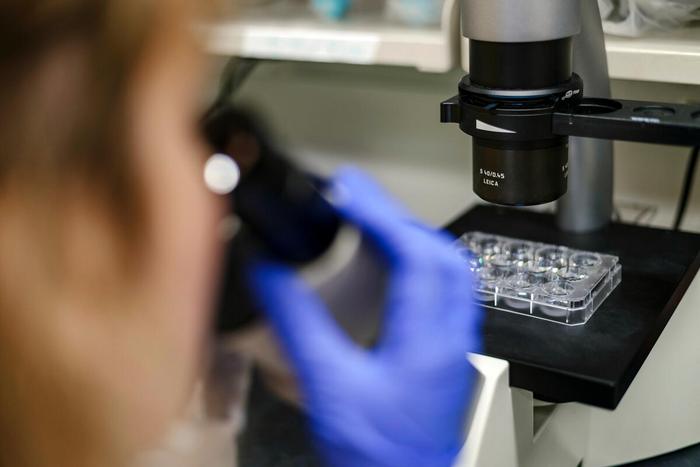New Insights from Memorial Sloan Kettering Illuminate Immune Defenses, CAR T Cell Side Effects, Metabolic Profiling, and CRISPR Antiviral Mechanisms
Recent breakthroughs from the Memorial Sloan Kettering Cancer Center (MSK) have shed light on crucial aspects of cancer biology and immune defense mechanisms, delivering fresh perspectives that could transform therapeutic strategies. From unexpected facets of immune response to leptomeningeal metastasis, to groundbreaking grading systems for CAR T cell therapy complications, innovative approaches for metabolic analysis, and new dimensions in CRISPR antiviral activity, MSK researchers are pushing the boundaries of medical science.
The brain and spinal cord are protected by a delicate and specialized system of membranes and fluid known as the leptomeningeal space. Yet, certain cancers can infiltrate this sanctuary—a phenomenon known as leptomeningeal metastasis (LM)—resulting in devastating neurological complications and poor prognoses. An MSK team spearheaded by Dr. Adrienne Boire has uncovered that the cytokine interferon-gamma, traditionally recognized for its broad immune-activating functions, plays a surprisingly pivotal role in orchestrating immunity in this niche. Their study revealed that elevating interferon-gamma levels in cerebrospinal fluid substantially suppresses tumor progression and prolongs survival in murine models.
Adding complexity to this discovery is the revelation that interferon-gamma’s antitumor efficacy in LM operates independently of the conventional adaptive immune system. Rather than engaging T cells or B cells, the cytokine stimulates the maturation of dendritic cells within the leptomeningeal microenvironment. These activated dendritic cells subsequently secrete a suite of signaling proteins—cytokines—that potentiate natural killer (NK) cells, the innate immune effectors capable of directly lysing cancerous cells. Thus, interferon-gamma creates a cascade that mobilizes innate immunity in an intricate, previously unappreciated manner, elucidating a novel paradigm in cancer immunology.
Car T cell therapy, a revolutionary immunotherapeutic modality that engineers patients’ T cells to target malignant B cells, has transformed hematologic cancer treatment. However, this approach is not without significant adverse effects, among which thrombocytopenia—or marked depletion of platelets—stands out given its implications for bleeding risk and overall morbidity. Addressing a critical need for precise assessment, investigators led by research fellow Dr. Kai Rejeski, along with colleagues Drs. Jaime Sanz, Miguel-Angel Perales, and Roni Shouval, have introduced an innovative grading system named T-ICAHT. This tool stratifies patients based on the severity and timing of thrombocytopenia following CAR T cell infusion, analyzed across a robust cohort of 744 individuals treated for B cell non-Hodgkin lymphoma.
The T-ICAHT grading system elucidated that nearly half of patients develop early thrombocytopenia, and a significant subset experiences severe platelet deficiency, with direct associations to increased transfusion requirements, elevated bleeding complications, and decreased overall survival. Validation of T-ICAHT in external patient groups underscores its potential as a universal clinical instrument. Integrating this grading scale into the forthcoming “Consensus Grading for Toxicities After Immune Effector Cells,” issued by the American Society of Transplantation and Cellular Therapy, promises to enhance management strategies tailored to mitigate treatment toxicity and improve patient outcomes.
Understanding cancer metabolism—a hallmark of tumor biology—relies on accurate measurement of metabolite concentrations within clinical specimens. Conventional biochemical assays, although precise, demand stringent sample preservation and complex analytical protocols, often precluding large-scale or retrospective studies. To address these limitations, an MSK research collective developed a novel computational framework, UnitedMet, which infers metabolic states through transcriptomic data by leveraging gene expression signatures indicative of metabolic pathway activity.
Graduate student Amy Xie, alongside computational oncologists Drs. Wesley Tansey and Ed Reznik, applied UnitedMet to dissect the metabolic landscape of renal cell carcinoma. Their analyses uncovered distinct metabolic signatures correlated with specific genetic mutations and disease staging, with advanced tumors exhibiting altered metabolic profiles predictive of poor response to combination therapies. UnitedMet’s capacity to estimate metabolite abundance from standard gene expression data heralds a transformative advancement for metabolic research, enabling the interrogation of metabolism in previously inaccessible samples with unprecedented efficiency.
Beyond oncologic contexts, MSK and Rockefeller University investigators have expanded our understanding of CRISPR systems—widely recognized for their revolutionary gene-editing capabilities. Their focus is on a subset of CRISPR-associated proteins termed CARF effectors, which metabolize essential cellular components to defend against viral invasion. A novel effector protein, Cat1, characterized by an intricately complex molecular structure, has been shown to deplete key metabolites indispensable for cellular functions, effectively starving invading viruses and halting replication.
The study, led by Dr. Dinshaw Patel at MSK and Dr. Luciano Marraffini at Rockefeller, elucidates how Cat1’s unique enzymatic activity represents a distinct antiviral strategy, differing significantly from canonical CRISPR-Cas9 mechanisms. The discovery of Cat1 illuminates the remarkable diversity and adaptability of bacterial immune systems and paves the way for innovative applications in antiviral therapies, synthetic biology, and immunomodulation.
Collectively, these findings from MSK underscore a multifaceted approach to cancer and immune research, integrating molecular immunology, clinical innovation, computational biology, and microbiology. As researchers continue to unravel the intricate interfaces between cancer biology and host defense, these advances hold promise to redefine diagnostics, prognostics, and therapeutics, ultimately improving patient care across a spectrum of diseases.
Subject of Research: Cancer immunology, CAR T cell therapy toxicities, cancer metabolism, CRISPR antiviral mechanisms
Article Title: Not provided
News Publication Date: Not provided
Web References:
– https://www.nature.com/articles/s41586-025-09012-z
– https://ashpublications.org/blood/article-abstract/doi/10.1182/blood.2025028833/536853/T-ICAHT-Grading-and-Prognostic-Impact-of?redirectedFrom=fulltext
– https://www.nature.com/articles/s43018-025-00943-0
– https://www.science.org/doi/10.1126/science.adv9045
– https://www.rockefeller.edu/news/37733-researchers-find-crispr-is-capable-of-even-more-than-we-thought/
References: See respective journal articles linked above
Image Credits: Memorial Sloan Kettering Cancer Center
Keywords: Cancer research, Metastasis, CRISPRs, Cell therapies




